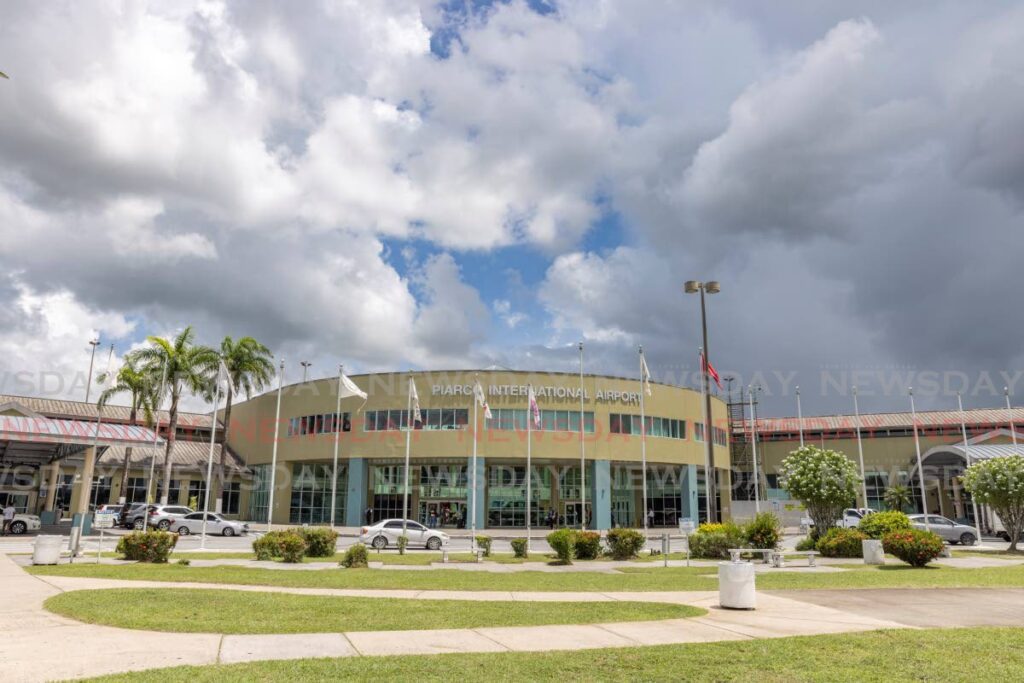Is there a turf war at Trinidad and Tobago's airports?

On November 12, an immigration officer who was reporting for duty on the 2-10 pm shift at Piarco International Airport is said to have presented his airport identification pass through a glass partition, in accordance with standard procedures.
After complying, it was alleged that he turned to leave to take up his shift, but the security officer followed him, put him in a headlock and forcibly restrained him, in plain sight of passengers.
This incident is symptomatic of the cross-jurisdictional conflicts that have existed at TT’s international airports for decades. Several government agencies operate at Piarco International Airport, each exercising powers vested in it by primary legislation.
From time to time, conflicts do arise among the agencies as to who is really in charge of the turf at TT’s airports.
Act 49 of 1979 provides for the establishment, incorporation and management of an Airports Authority of TT (AATT) to ensure the provision of efficient, secure and safe aviation services.
The act vests all real estate, including terminal buildings, runways, taxiways, tarmac and delineated adjacent lands, in the AATT.
Section 29 of the act says the prevention of the commission of offences against this act, the Civil Aviation (Tokyo Convention) Act and the Hijacking Act, and the protection of people and property from dangers arising from the commission of such offences, is the responsibility of the police service.
There is no police post at the airport, except for a special branch unit. Police functions are exercised by AATT security officers who are precepted as estate constables by the Commissioner of Police, in accordance with sections nine and ten of the Supplemental Police Act (Act 11 of 1906).
According to the provisions of the Customs Act (Act 22 of 1938), the AATT Airport Estate and its delineated environs at Piarco are, by order, deemed bonded areas under the control of the Comptroller of Customs.
In carrying out the provisions of the customs laws, section three of the act vests in all customs officers the powers, authorities and privileges given by law to members of the police service.
Section five of the act empowers a customs officer to arrest any person who obstructs, hinders, molests or assaults any officer duly engaged in the performance of any duty or the exercise of any power imposed or conferred on him by any customs laws or any person acting in his aid.

Section 12 of the Immigration Act (Act 41of 1969) says every immigration officer has the authority and powers of a constable to enforce any provision of the Immigration Act, the regulations or any order lawfully made under the act or the regulations relating to the arrest, detention or deportation of any person.
The Quarantine Act (Act 19 of 1944) empowers port health officers, under regulations made by the line minister, to detain aircraft, people and things that are or have been on board the aircraft, to prevent danger to public health from the aircraft, people or things thereon by the spread of infections.
Act 31 of 1965 established the fire service which has trained and equipped airport firefighting units based at TT’s international airports.
Section 36 of the act empowers a fire officer to arrest, without a warrant, any person who assaults, obstructs or impedes him or any other member of the fire service in executing any of their duties prescribed under this act.
The TT Civil Aviation Authority (TTCAA) was established by Act 11 of 2001. It empowers the TTCAA to regulate all civil aviation operations in TT, including the AATT’s aerodromes.
Civil Aviation Regulations require the AATT to have access control systems that meet the international standards prescribed by the ICAO annexes.
Under regulation five of the Aviation Security Regulations, the AATT is required to have an aerodrome operator security programme approved by the TTCAA that meets the requirements of the regulations. This programme details, among other things,AATT procedures for screening all passengers and baggage and effective control of all access to aircraft and restricted airside areas.
The primary purpose of access control is to regulate entry to critical areas by ensuring that only people who are bona-fide passengers or whose employment requires their presence in restricted areas are allowed to enter the airside.
At the landside/airside security checkpoints, a uniformed AATT security officer will examine a passenger's boarding pass and passport to verify that the passenger’s name on the boarding pass and the facial features of the passenger match the biographical data on the passport. If there is a mismatch, the passenger will not be allowed into the sterile departure area.
Likewise, other people such as immigration officers who are required to work at TT’s airports are issued AATT security passes with their names, photograph and an expiry date.
At the international landside/airside security checkpoint at Piarco used by passengers, all airport employees present their AATT security passes for verification of facial features, name and validity of the pass.
The egos of immigration officers can be hurt when their security pass is scrutinised in front of passengers.
However, flashing a security pass does not permit an AATT security officer to properly examine it, and may result in further intervention.
AATT security officers exercise extreme diligence in ensuring unauthorised people do not access the airside and commit acts of unlawful interference, with catastrophic consequences.
The effectiveness of the AATT aerodrome operator security programme, including access control, is tested periodically by the TTCAA and the US TSA through audits and inspections.
Six of the seven agencies operating at TT airports have powers of arrest and/or detention, while four have powers to arrest anyone who interferes with the performance of their duties. All of them navigate a labyrinth of laws and regulations to collectively perform their statutory duties.
To minimise disagreements and conflicts, the AATT should move ahead with the rest of the world and implement biometric access control systems using facial recognition and fingerprints.
Also, the executives of AATT, Customs and Exercise Division, Fire Services, Port Health, Immigration Division, the police service and the Civil Aviation Authority should meet regularly to agree on appropriate protocols for working together collaboratively to ensure TT’s compliance with the standards of ICAO’s annex nine – facilitation, and annex 17 – security.

Comments
"Is there a turf war at Trinidad and Tobago’s airports?"